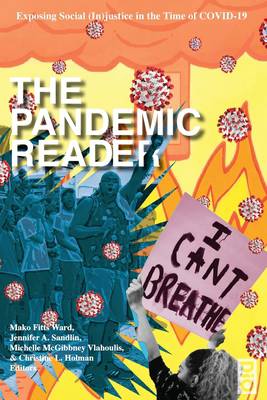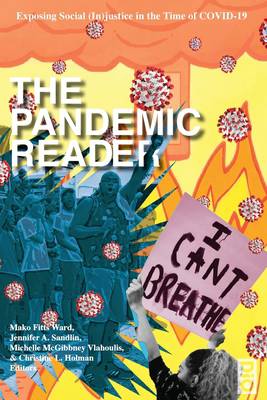
- Retrait gratuit dans votre magasin Club
- 7.000.000 titres dans notre catalogue
- Payer en toute sécurité
- Toujours un magasin près de chez vous
- Retrait gratuit dans votre magasin Club
- 7.000.000 titres dans notre catalogue
- Payer en toute sécurité
- Toujours un magasin près de chez vous
The Pandemic Reader
Exposing Social (In)justice in the Time of COVID-19
Description
Pandemic Pedagogies invites readers to consider how the COVID-19 pandemic has radically altered every facet of social life. From education and communication to structures of government, health systems, social and recreational services, the justice system, and the global economy, educators are forced to consider new ways of teaching and learning in the midst of survival. Drawing on the public writing of scholars, journalists, health professionals, public intellectuals, and activists, the essays in this collection explore the transformations and consequences of pandemics, along with evidence-based responses, critical analysis, and sociohistorical framing, all necessary tools for situating the disparate impacts and contributing to public debates. In nine sections, the book addresses grammars of negation, the pandemic of racism, investments in coronavirus capitalism, the politics of exposure and protection, the politics of space, ecologies of justice, crises in leadership, narratives of resilience, and tools and strategies for teaching about the pandemic. Pandemic Pedagogies offers critical perspectives on the sweeping injustices intensified by COVID-19 and the resurgence of racialized state violence. It offers context, data, viewpoints and solutions to collectively teach, learn, and thrive. It takes up abolitionist teaching methodologies-focusing not only on the many ways the pandemic has exacerbated injustice, but also on how individuals and communities are healing, expressing vulnerability, and building community-to amplify intersectional racial justice strategies across learning spaces. This collection is a pedagogical intervention to locate how individuals and communities propel us forward through the multiple pandemics of 2020.
Spécifications
Parties prenantes
- Editeur:
Contenu
- Nombre de pages :
- 298
- Langue:
- Anglais
- Collection :
- Tome:
- n° 22
Caractéristiques
- EAN:
- 9781645041184
- Date de parution :
- 21-07-21
- Format:
- Livre broché
- Format numérique:
- Trade paperback (VS)
- Dimensions :
- 156 mm x 234 mm
- Poids :
- 421 g






